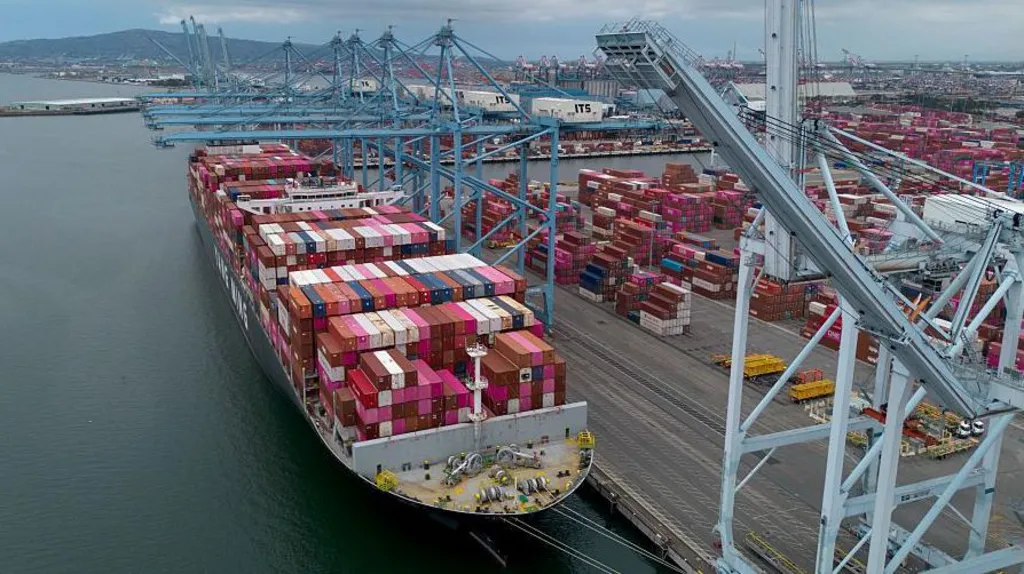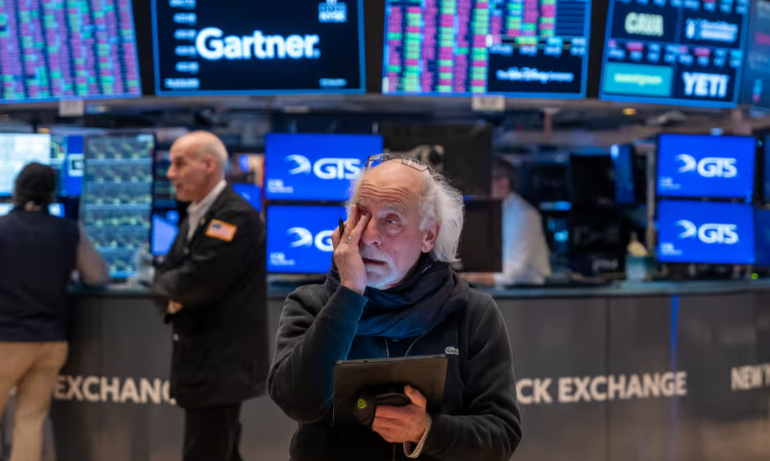Global stock markets experienced significant declines on Monday, as concerns grew over the potential impact of new tariffs expected to be announced by US President Donald Trump this week.
Trump’s comments about imposing tariffs on “all countries” added to fears of an escalating trade war, sending shockwaves through financial markets across Asia-Pacific and Europe.
The global sell-off followed remarks made by Trump aboard Air Force One, where he stated that the upcoming tariffs would apply to “essentially all of the countries we’re talking about.” This statement contradicted earlier expectations that the tariffs would specifically target nations with large trade imbalances with the United States. With the announcement scheduled for Wednesday, dubbed “Liberation Day” by Trump, markets braced for more volatility.
In Asia, the Nikkei 225 in Japan dropped 4%, while South Korea’s Kospi index fell by 3%. Meanwhile, European markets also faced steep losses, with the UK’s FTSE 100 falling 1.3%, Germany’s DAX losing 2%, and France’s CAC 40 down by 2%. The global wave of selling continued into New York, where futures indicated a likely 1% drop for the S&P 500.
The uncertainty surrounding Trump’s trade policies also fueled demand for safe-haven assets, with gold reaching a new record high of $3,128 per ounce. The gold surge reflected growing investor concerns about inflation and the potential negative effects of rising tariffs on the global economy. Economists fear that higher import costs could lead to increased US inflation as companies pass on the tariff burden to consumers, while also dampening business and consumer confidence.
In response to the rising uncertainty, Goldman Sachs raised the probability of a US recession within the next 12 months to 35%, up from 20%. They also warned of a potential 25% drop in the S&P 500 if the economy enters a recession. UBS similarly revised its year-end forecast for the S&P 500, lowering its target from 6,600 points to 6,400.
The impact of Trump’s trade policies has been far-reaching. The anticipated tariffs, particularly those targeting the automotive sector, have put significant pressure on global manufacturers. German carmakers, including Volkswagen, have faced continued declines in their stock prices, while technology companies, such as chipmakers in Taiwan and South Korea, are also feeling the effects of the looming tariffs.
Investors have been increasingly “de-risking” their portfolios in response to the uncertainty, with many turning to US government bonds and gold as safer investments. As the situation develops, analysts remain concerned that prolonged trade tensions could exacerbate global economic slowdowns, leading to a continued erosion of investor confidence.
The Guardian, the New York Times, and Bloomberg contributed to this report.










The latest news in your social feeds
Subscribe to our social media platforms to stay tuned